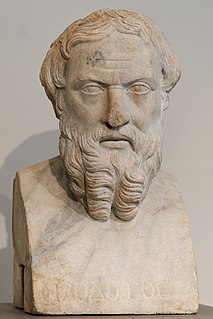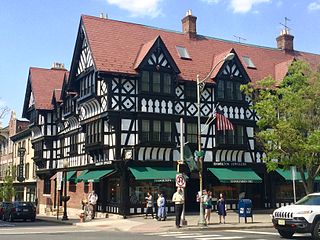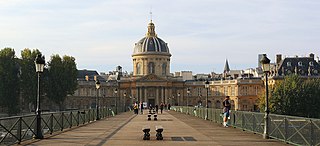
Antoine de Rivarol was a Royalist French writer and translator who lived during the Revolutionary era. He was briefly married to the translator Louisa Henrietta de Rivarol.

Michel Winock is a French historian, specializing in the history of the French Republic, intellectual movements, antisemitism, nationalism and the far right movements of France. He is a professeur des universités in contemporary history at the Institut d'Etudes Politiques de Paris (Sciences-Po) and member of L'Histoire magazine's editing board. Winock has also worked as a reporter for Le Monde.
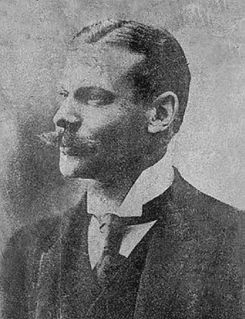
André Siegfried was a French academic, geographer and political writer best known to English speakers for his commentaries on American, Canadian, and British politics.

François Duprat (1940–1978) was a writer, a founding member of the Front National party and part of the leadership until his assassination in 1978.
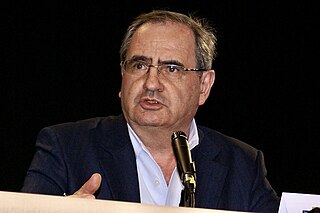
Pierre Rosanvallon is a French intellectual and historian, named professor at the Collège de France in 2001. He holds there the chair in modern and contemporary political history. His works are dedicated to the history of democracy, French political history, the role of the state, and the question of social justice in contemporary societies. He is also director of studies at the École des hautes études en sciences sociales, where he led the Raymond Aron Centre of Political Researches between 1992 and 2005. Rosanvallon was in the 1970s one of the primary theoreticians of workers' self-management in the French Democratic Confederation of Labour (CFDT) trade union.
Yves Roucaute is a French philosopher, Phd, Phd (philosophy), writer, professeur agrégé in philosophy, professeur agrégé in political science, teaching at Paris X University Nanterre, Previous President of the scientific Council of the "Institut National des Hautes Etudes de Securité et de Justice", director of the review "Cahiers de la Sécurité", counseillor of the "réformateurs" group at the French National Assembly. He has held a number of positions in cabinet ministers of right-wing governments, and is a close friend of Alain Madelin, Jean-Pierre Raffarin, and Nicolas Sarkozy. He is also a journalist and columnist He was editing director of some newspapers and he is the owner of newspaper in the south of France and minority stockholder of some others. He is the majority stockholder of "Contemporary Bookstore" SAS.
Jean Baubérot, is a French historian and sociologist specializing in sociology of religions. He is the founder of the sociology of secularism.
Pierre Chaunu was a French historian. His specialty was Latin American history; he also studied French social and religious history of the 16th, 17th, and 18th centuries. A leading figure in French quantitative history as the founder of "serial history", he was professor emeritus at Paris IV-Sorbonne, a member of the Institut de France, and a commander of the Légion d'Honneur. A convert to Protestantism from Roman Catholicism, he defended his Gaullist views most notably in a longtime column in Le Figaro and on Radio Courtoisie.

Olivier Duhamel is a French university professor and politician. He was a Socialist member of the European Parliament from 1997 to 2004.
Henri Joseph Léon Baudrillart was a French economist.

Allain Caillé is a French sociologist and economist. He is Professor of sociology at the University of Paris X Nanterre. He is a founding member of the Anti-Utilitarian Movement in the Social Sciences (MAUSS) and editor of the movement's monthly journal "Revue du Mauss".

Christian Delporte, is a French historian specialized in political and cultural history of France in the twentieth century, including the history of media, image and political communication.

Bernard Cottret, born in 1951 at Boulogne-Billancourt near Paris, is a French Historian and literary scholar.
Jean-Baptiste Duroselle was a French historian and professor. He had initially considered an army career or study of geography, but his poor skills in mathematics and drawing led him to turn to historical study. Pierre Renouvin's course fascinated him, and he became his assistant in 1945. He went on to teach at University of Saarbrücken from 1950 to 1957 and returned to the Sorbonne afterward. Duroselle's writings include La Decadence (1980), L'Abime (1985), and others. He was noted for his study of international relations and won a 1982 Balzan Prize for Social Sciences for his work.
Georges-Henri Bousquet was a 20th-century French jurist, economist and Islamologist. He was Professor of law at the Faculty of Law of the University of Algiers where he was a specialist in the sociology of North Africa. He is also known for his translation work of the great Muslim authors, Al-Ghazali, a theologian who died in 1111 and Tunisian historian Ibn Khaldun (1332-1406). He was known as a polyglot, spoke several European languages and Eastern ones.
Yves-Marie Bercé, is a French historian known for his work on popular revolts of the modern era. He is a member of the Institut de France.
Xavier de Montclos is a 20th-21st-century French historian, a specialist of the history of religions and particularly christianity.

Nicolas d’Estienne d’Orves is a French journalist and writer.

Patrick Boucheron is a French historian. He previously taught medieval history at the École normale supérieure and the University of Paris. He is a professor of history at the Collège de France. He is the author of 12 books and or the editor of 5 books. His 2017 book, Histoire mondiale de la France, compiled work by 122 historians and became an unexpected bestseller.
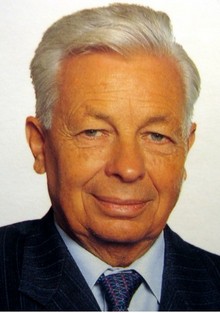
Raoul Girardet was a French historian who specialized in military societies, colonialism and French nationalism. As a young man he was involved with the right-wing Action Française movement. He was not antisemitic, but was passionately nationalistic. During World War II he supported the French Resistance. Later he support the OAS struggle against giving independence to Algeria.


